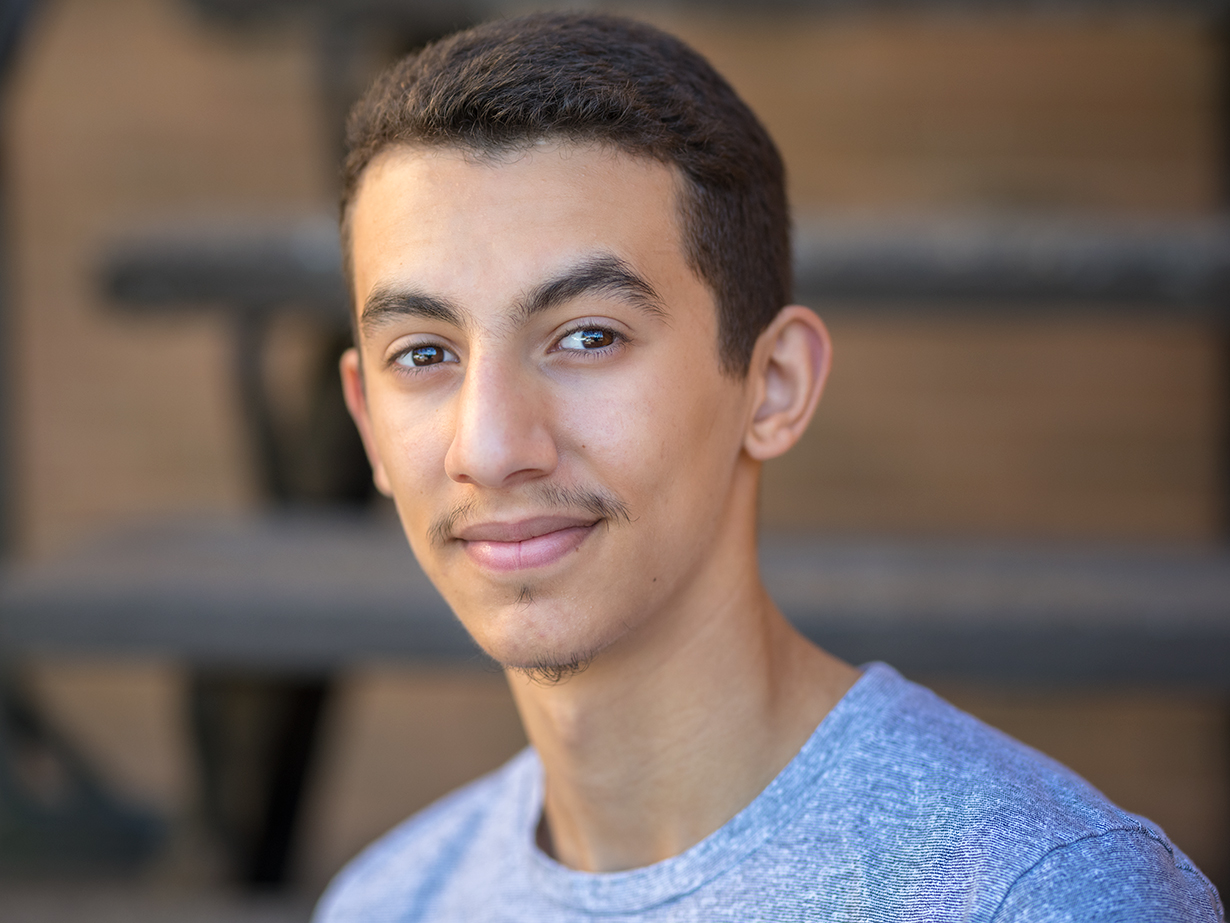Amidst the thick darkness of a city just before sunrise on the day he arrived in Portland, Abdulelah Aldabea imagined his brain was an iPhone restoring to factory settings: wiped clean and ready to be reprogrammed. On the ride to his family’s new apartment, the weary 14-year-old refugee used his passion for computers as a lens to observe his new world.
“If you have a phone, you restart the phone – it’s just clean. I erased everything from my mind and I was like, ‘I need to focus on this; I need to help my family,’ and I started to learn English,” says Abdulelah.
Abdulelah was born in Damascus, on January 1, 2002, during a time of peace. He lived in an apartment complex with his parents, older sister, and extended family. Outside was a small neighborhood community garden and every morning he walked to a nearby school with his sister and cousins. He loved learning, and he felt secure.
“It was really safe when I was young. Nobody was worried about us because everyone knows each other. They’re like a really big family,” Abdulelah recalls.
However, on a fateful morning in 2011, the simmering political tension between citizens protesting for democracy and the Syrian government came to a head outside his local mosque. On this morning, deceptively like any other, when Abdulelah and his father exited the mosque after their morning prayers, they found themselves unsuspecting participants in a shocking scene.
Protesters’ emphatic chants for freedom echoed through the courtyard as gas-fire from the local military rained down. Frightened and confused, Abdulelah ran, pushing his father, who is confined to a wheelchair, for a half-mile as they fled from the riot.
The city he had called home would never be the same.
“They started to kidnap people… families got scared and they don’t want to send their children to school anymore,” he recalled.
The danger forced Abdulelah to stop attending school in 2012. That same year, his family said goodbye to the apartment complex that had once been their place of refuge, the garden that had been a quiet symbol of a peaceful community, and the neighbors who would always be remembered as friends. Packing sparsely, they fled to Jordan where his aunt and uncle lived just outside Aman.
After they arrived, Abdulelah again chose to forfeit his chance to attend school so he could help his father support their family. For about a year he jumped from one odd job to the next. Then, fortuitously, he found himself the apprentice for a cell-phone repairman. Abdulelah always hoped to return to his education, and was excited to discover that his new job was its own type of classroom.
“I watched others until I could do it and he tested me and I did everything right,” said Abdulelah. For two years he worked alongside his Jordanian teacher until he came to understand the complexities of computer systems.
In the future, he says, “I’m going to become a computer programmer.” His tone lifting audibly as he recalls the tiny shop where he once spent hours repairing SIM cards and fixing cracked phone screens.
In December 2014, the United Nations offered Abdulelah’s family their final placement in an unfamiliar city called Portland, Oregon. Two short months of preparation, and one layover in Chicago later, they arrived: exhausted and knowing only the words “hello” and “goodbye.”
After a three-year hiatus from school, local volunteers helped the culture-shocked Abdulelah to enroll in Reynolds High School as a freshman in their English Language Development Program.
“I went into school knowing nothing,” said Abdulelah, who took advantage of almost every after-school program available to improve his English. At the end of his first year, A’s were the only letter on his report card.
He is a dedicated student and track athlete who has made close friends in the ELD program.
Sheepishly Abdulelah described how he recently broke up a fight between two of his peers: “I like both of them – they are my friends…I felt like I am protecting other people.”
Abdulelah hopes to test out of ELD by the end of this academic year. After high school he plans to continue studying computers, learning English, and above all, supporting his family as they continue building a new life:
“My hope,” he says, “ is to become a really good man, a really good worker and also to help my family get a house.”


One thought on “Reprogrammed Like a Cell Phone”
Thank you Sankar for helping bring awareness and understanding regarding immigrant and refugee families in America. Abood is an amazing young man and he and his family spread love and joy in spite of the heartbreak they have endured. They are great teachers!
Comments are closed.